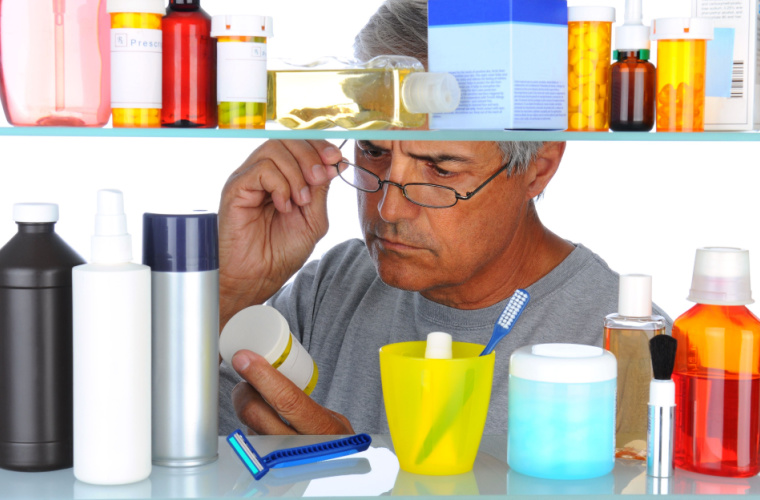The Ultimate Medicine Cabinet Makeover: What to Keep and What to Toss

Our medicine cabinet can be a treasure trove of remedies when we’re feeling under the weather, but let’s face it, it can quickly turn into a chaotic assortment of expired medications, half-empty pill bottles and mystery ointments. When was the last time you took a good look at what's hiding behind those doors?
A well-organized and properly stocked medicine cabinet can be a game-changer for your health and wellness. Mary Lomberk, a board-certified pharmacist at Mease Countryside Hospital, shares tips and tricks to give your medicine cabinet a makeover, separating the essentials from the outdated and potentially harmful items.
What to Keep:
1. Pain Relievers and Fever Reducers
Ensure you have a reliable over-the-counter pain reliever like acetaminophen or ibuprofen. These can be a lifesaver for headaches, muscle aches, and fever. Don’t forget to have a working thermometer, too!
2. First-Aid Basics
Keep a well-stocked first aid kit with bandages, antiseptic wipes, adhesive tape, and gauze. Be prepared for minor cuts, scrapes, and bruises.
3. Allergy Medications
Antihistamines, both oral and topical, are crucial for allergy relief. Whether it's hay fever or a sudden skin reaction, having these medications on hand can provide quick relief.
4. Cold and Flu Remedies
Stock up on decongestants, cough syrup, and throat lozenges. These items can come to the rescue during the flu season or when you catch a cold. Make sure to review expiration dates each flu season.
5. Gastrointestinal medications
Digestive health matters. Whether it's heartburn, a stomachache or bloating, make sure your medicine cabinet is gut-friendly with essentials like antacids, probiotics and anti-diarrheal medications.
6. Prescription Medication
If you have any prescription medications, keep them in their original containers or in a well-organized pill box. Check expiration dates regularly and refill as needed.
7. Daily Essentials
Don't forget about your daily vitamins and supplements. Whether it's a multivitamin, vitamin D, or Omega-3, having these items readily available can help you stay consistent with your health regimen.
What to Toss:
1. Expired Medication
Medications lose their potency over time, so be sure to check expiration dates regularly. Safely dispose of any expired medications according to local guidelines. Your local pharmacy can often help.
2. Unused or Outdated Prescriptions
If you have prescription medications that are no longer needed or past their expiration date, it's best to dispose of them. Many pharmacies offer medication disposal services.
3. Old Bandages and Dressings
First aid items like bandages and dressings can lose their effectiveness over time. Replace any that look old, discolored, or damaged.
4. Unlabeled Medications
If you can’t identify it, it's safer to discard it. Uncertainty about the contents can lead to accidental misuse.
5. Topical Medications with Changed Consistency or Color
Changes in the appearance or consistency of topical medications may indicate spoilage or loss of efficacy. If in doubt, throw it out.
“A well-organized medicine cabinet can be your first line of defense against common health issues,” said Lomberk. “Regularly decluttering and updating your supplies will ensure that you have what you need when you need it.” By keeping the essentials and tossing the outdated items, you'll create a space that promotes health, safety, and peace of mind.
